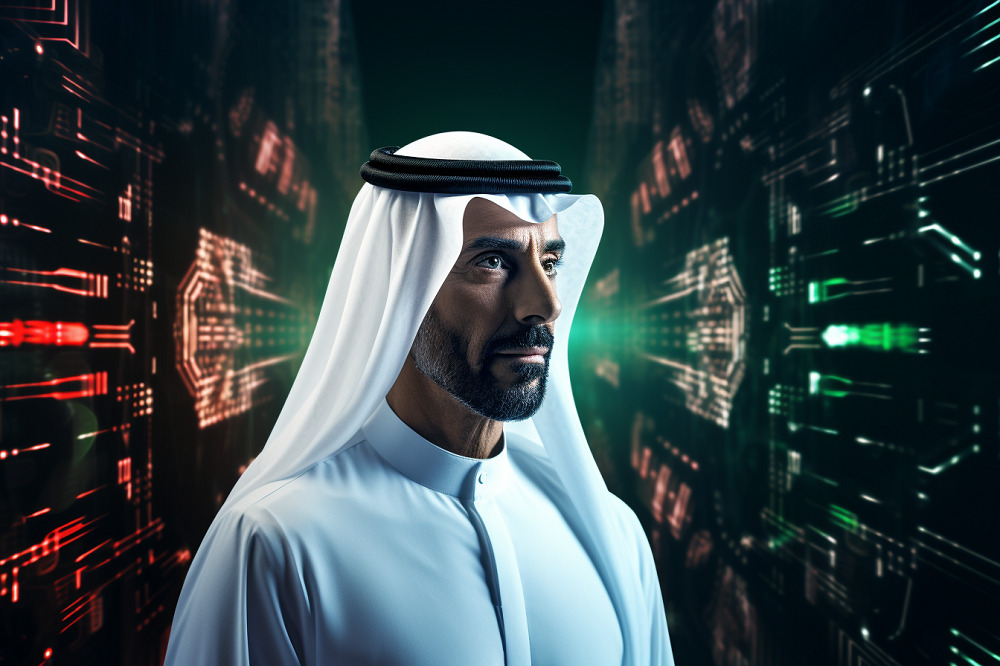UAE President Establishes Artificial Intelligence Council
The United Arab Emirates (UAE) president, Sheikh Mohamed bin Zayed Al Nahyan, recently enacted a law establishing the Artificial Intelligence and Advanced Technology Council (AIATC). This newly formed council, which has Sheikh Tahnoun bin Zayed as the chairman while the Vice Chairman is Sheikh Khaled bin Mohamed bin Zayed, is tasked with developing and implementing AI policies across research, infrastructure, and investments in Abu Dhabi.
The council’s role extends beyond policy formulation; it will also collaborate with local and global partners, fostering plans and research programs to elevate Abu Dhabi’s standing in the AI domain. This initiative aligns with the UAE’s broader strategy to position itself as a global tech hub, evident in previous efforts such as the Emirates Blockchain Strategy and the Dubai Metaverse Strategy.
The UAE has been actively embracing technological advancements, with notable milestones like establishing the Virtual Asset Regulatory Authority (VARA) for crypto regulation by Dubai ruler Sheikh Mohammed bin Rashid Al Maktoum in 2022. Additionally, the Dubai International Financial Centre (DIFC) took a significant step last August by offering commercial licenses for AI and Web3 businesses with a substantial 90% subsidy.
Furthermore, the country introduced a dedicated free economic zone for Web3 and AI service providers, exemplified by the RAK digital assets oasis (DAO) launch in Ras Al Khaimah last October.
AI-Generated Deepfake Audio Targets New Hampshire Voters
Meanwhile, citizens in New Hampshire were subjects of a wave of deceptive robo-calls over the weekend featuring an uncannily accurate deepfake imitation of United States President Joe Biden’s voice. The messages, generated by an artificial intelligence (AI) deepfake tool, urged residents not to participate in the Jan. 23 primary.
However, the state’s attorney general’s office swiftly denounced the calls, categorizing them as misinformation and emphasizing that voters should disregard the content entirely. The incident raises serious concerns about the potential exploitation of AI-driven technologies to manipulate democratic processes, raising serious concerns ahead of the 2024 presidential election.
Political Insider Fooled by Deepfake Audio
In a separate incident, an AI-generated audio impersonating Manhattan Democrat leader Keith Wright surfaced on Jan. 21. The deep fake audio portrayed Wright engaging in derogatory talk about fellow Democratic Assembly member, Inez Dickens.
Former City Council Speaker Melissa Mark-Viverito revealed her initial shock, stating that she thought the audio was real.
Experts Warn Of Vulnerabilities In AI-Driven Deepfakes
Experts suggest that bad actors increasingly turn to audio-based deepfakes due to the public’s lack of awareness and skepticism regarding visual manipulation. Meanwhile, AI advisor Henry Ajder pointed out that no universal effective method to detect or deter deepfakes exists.
This lack of a foolproof solution leaves individuals vulnerable to manipulated media influence, especially in sensitive matters like politics. While the crypto world has embraced technological advancements, the potential for deepfake-driven disruptions raises questions about the reliability of information within the community.
Experts advise exercising caution when engaging with media from unknown or dubious sources.
